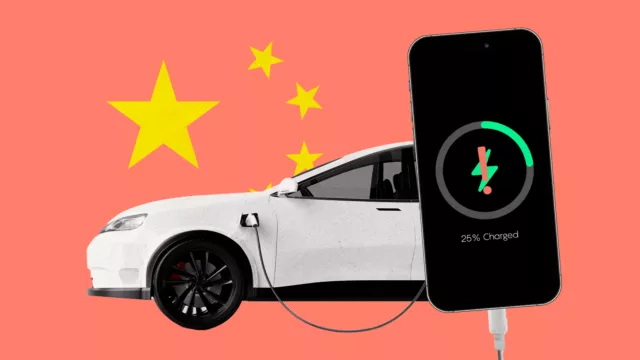
Defence firms have reportedly warned staff not to connect their mobile phones to Chinese-made electric cars over fears that sensitive national security data could be stolen.
One industry source told The Times that the sector had “massively tightened up security” in recent years to combat concerns about foreign states spying on UK employees through their electric vehicles (EV) or other devices.
The Ministry of Defence (MoD) has also introduced measures to mitigate potential threats around using vehicles equipped with increasingly sophisticated technology at sensitive military sites across the country.
The moves come as more consumers turn to Chinese EV brands because they are cheaper than their competitors and able to travel long distances.
One defence industry source told The Times: “There has been a massive tightening up of security. Obviously, Chinese intelligence activities are off the wall. I believe there has been some activity at the MoD level about concern around Chinese vehicles and the huge amount of tech they’ve got in them, and a lot more companies are waking up to the issues. It’s on the radar of security for sure.”
Some of the precautions are said to include instructing employees not to park in production plant car parks, not discussing their work in the vehicles, and not connecting mobile phones via Bluetooth or a charging cable.
The rules are understood to have been in place at major defence firms for years and were not specifically drafted in response to Chinese developments, though Beijing’s recent drive to produce millions of EVs has made the companies more alert.
“This is not necessarily just because of the Chinese, it’s a much wider intelligence threat if you read into the stars. Russia and China are state-sponsored, but there are also black hat hackers out there that can bring down cyber firms. It is a real threat,” the insider added.
The i paper reported that several of Britain’s biggest defence firms were taking precautions, as well as the US defence giant Lockheed Martin and the French defence and cybersecurity firm Thales, which has facilities across the UK.
An industry executive told the newspaper: “The sale of Chinese cars is growing in the UK, and we are, rightly, cautious about that. We are making our staff aware of the sensible precautions to take if they choose to buy a Chinese EV.”
A further source added: “It is safe to assume that every major defence supplier is concerned about the tech in Chinese-built cars.
“In the same way that government departments and defence firms have long told staff not to plug memory sticks into their work laptops to prevent security breaches, it is a sensible precaution not to plug your phone into your car because all the data could become vulnerable.”
When asked about restrictions on Chinese-manufactured vehicles at MoD barracks and training facilities, Lord Coaker, a Labour peer, said government departments were working “to understand and mitigate any potential threats to national security from vehicles”.
He added: “Our policies and procedures take account of the potential threats from all types of vehicle, not just those manufactured in China, and we have issued appropriate internal direction to all drivers and passengers.
“There are no centrally mandated policy restrictions on the movement of Chinese-manufactured vehicles. We are aware that individual defence organisations may have stricter requirements relating to electric vehicles on some sites, but we do not provide specific details for security reasons.”
In 2022, Thales UK launched a cyberfacility in Wales that specialises in assessing vulnerabilities that expose how electric and autonomous cars can be hacked.
A spokesman for Lockheed Martin said: “As a global defence and technology leader, Lockheed Martin prioritises the safety and security of its facilities, employees, and operations around the world and has a robust, ongoing process to reduce and mitigate risk.
“It would be inappropriate to discuss details of specific measures in place at any of our facilities.”
Xpeng, a Chinese electric car manufacturer, which recently launched its all-electric G6 SUV in the UK, denied that its cars spy on drivers.
A spokesman for the company said: “Xpeng takes its customers and their data protection seriously. Xpeng is fully compliant with UK and EU rules and regulations and is committed to continuously adhering to and complying with the applicable UK and EU privacy laws and regulations.
“To demonstrate our privacy compliance in the UK and EU, we have two globally recognised privacy information management certificates.”
The government said said: “Protecting national security is our top priority and we have strict procedures in place to ensure that government sites and information are appropriately protected.
“This government has helped develop new international regulations to clamp down on potential threats in vehicle construction, monitor emerging threats and respond to any cyber-attacks.”









